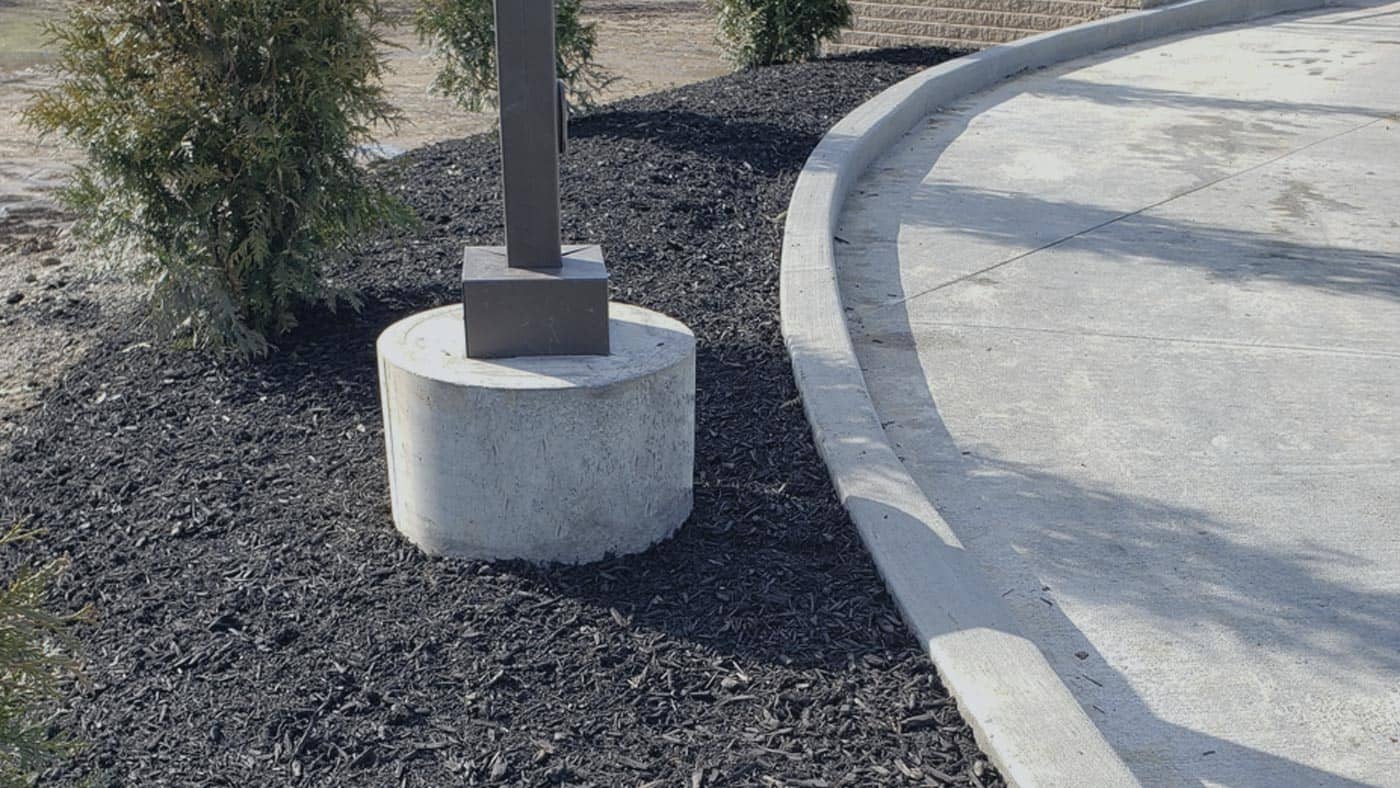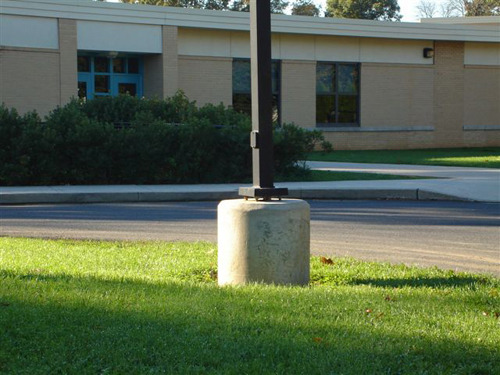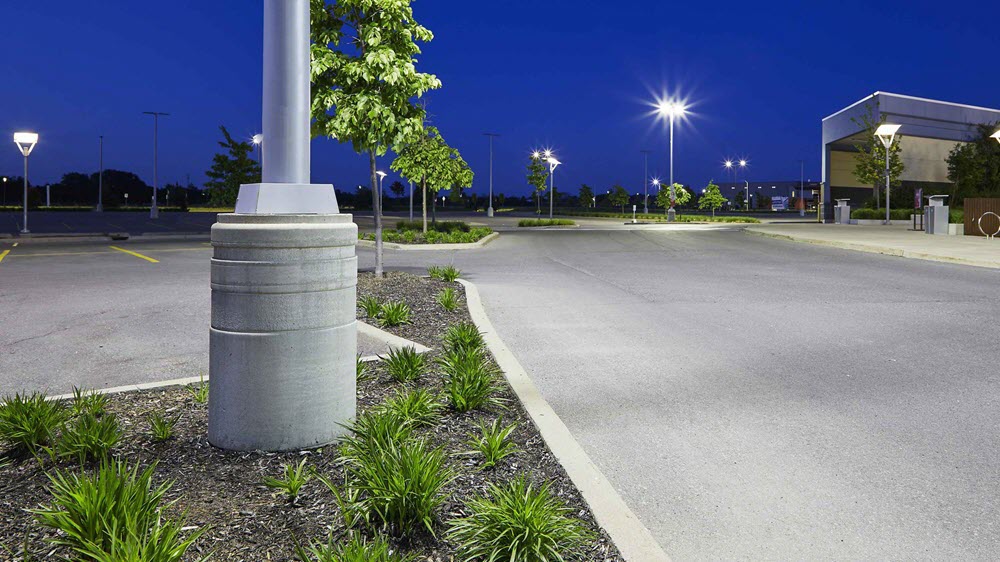Flood Light Base Servicesin Rochester MI
Comprehensive Flood Light Installation for Enhanced Safety
We Are Locally Owned & Operated For Over 37 Years
Contact Us Today!
We Serve Businesses In And Around The Following Cities:
About Flood Light Base Services
The Significance of Flood Light Bases
In every city’s commercial sphere, visibility is key. One of the most essential elements of illumination for business properties, particularly highlighted in the city of Rochester, is the strategic placement of flood lights. Such lights function not only as a crucial safety measure but also can significantly contribute towards enhancing the aesthetic appeal of a commercial establishment. However, this effective lighting solution’s success lies not solely in the floodlights themselves but also in their unsung heroes – the flood light bases.
Understanding Flood Light Bases
Often, less visible and underestimated, flood light bases serve as the anchor point and backbone of the entire floodlight setup. They support the flood light, paying attention to stability, alignment, distribution of weight, and sometimes, even electrical connections. Consider the flood light as an eminent painting and the base as its unswerving frame. Without a adequately robust and reliable base, the light can’t perform its function, becoming unreliable, and at times, downright hazardous.
Designing and Selecting Flood Light Bases
Similar to any other sturdy construction, building a dependable flood light base demands skill, proficiency, and awareness of intricacies. Business properties require professional services to ensure structural integrity and optimal performance. This is where Rochester’s well-respected services such as those offered by D&J Contracting come into the picture. Their commitment to quality and vast expertise helps businesses in Rochester make informed decisions about their needs for flood light bases.
The Process of Implementing Flood Light Bases
When selecting a flood light base, various factors need to be considered. These include the location of the light, type of the ground, geographical conditions, and the specific flood light application. The base design must adapt to resist wind loads, handle the flood light’s weight, or comply with potential soil erosion which may occur in the due course. Typically, the process involves a thorough analysis and evaluation followed by the design and installation phases. Firms such as D&J Contracting provide end-to-end service, ensuring quality and satisfaction from conceptualization to completion.
Applied Uses and Commercial Benefits
Apart from offering functional and aesthetical benefits, strategical application of flood light bases can bring added monetary advantages for businesses. Power consumption can be optimized by ideal positioning of flood light bases, ensuring that a single light illuminates maximum possible area. Their robust design minimizes the need for reinstallation or recurring maintenance, thus saving costs in the long run. Additionally, they contribute to a better business atmosphere and an increase in the footfall after sundown, indirectly driving the business growth.
flood light bases In The City of Rochester
Known for its bustling urban life and vibrant businesses, Rochester offers a vast landscape of potential opportunities for implementing flood light bases. They complement the city’s architectural beauty and secure locals and tourists’ safety alike, especially during the city’s long winter nights. Experienced firms like D&J Contracting understand the unique challenges and advantages of the Rochester climate and architecture, offering customized solutions for every business need.
Realizing the Full Potential With D&J Contracting Services
For businesses in Rochester looking to secure and improve their lighting infrastructure, D&J Contracting is a trusted partner. They provide comprehensive solutions for flood light bases, combined with extensive experience and localized knowledge. Their services range from planning and installation to maintenance and upgrade. As such, they stand as a beacon, much like the flood lights themselves, guiding the commercial properties in Rochester to new heights of functionality, safety, and style.
In conclusion, the role of flood light bases cannot be emphasized enough. They form an integral, yet often overlooked, component of commercial lighting solutions. In Rochester, the combination of flood lights and their bases presents a versatile tool for businesses to balance illumination and safety with optimal cost. By partnering with knowledgeable and experienced service providers like D&J Contracting, businesses can harness the full potential of their flood light system, creating a shining beacon in the ever-growing urban landscape.
Flood Light Base Services Gallery


Call Us Today to receive your Free Quote for
Flood Light Bases in Rochester
Serving: Rochester, Michigan

About Rochester, Michigan
The Odawa, Ojibwe, Potawatomi and Wyandot peoples all resided in the Rochester area. All of them ceded land claims by the early 19th century. The first settlers in what would become Rochester, the Graham family, built a log cabin in 1817. The cabin was located on present-day 3rd St., just west of Main. The city was named for Rochester, New York, just like Rochester, Minnesota, as many early settlers to the area were formerly from the state of New York.
The city became an industrial center with abundant water power from the Clinton River and Paint Creek. The interconnected waterways are no longer used for travel or local industry, but provide natural beauty, some fishing, and a healthy portion of the Clinton Watershed. Historically, past industries formerly located in Rochester included a refinery for sugar beets, a paper products company, and the Western Knitting Mills factory, which was later adapted and utilized during World War II for incendiary production—businesses that no longer exist in the area. Rochester was served by two railroads as well as the Detroit United Railway, an interurban to Royal Oak and Detroit.
Chapman Mill Pond, east of downtown, disappeared into the Paint Creek when the dam broke during the flood of 1946. The reclaimed land is the site of the current post office, Rochester Hills library, and Olde Towne Road. Water Street, formerly situated at the edge of the large pond, remains by its name a reminder of the pond’s former existence.
Michigan became the 26th state in 1837, and the Village of Rochester was formed on April 12, 1869, within the boundaries of Avon Township. By 1895, Rochester’s population was 900. The village became the city of Rochester in 1967, breaking away from Avon Township. Avon Township became the City of Rochester Hills in 1984, following a long court battle, where the city of Rochester annexed 2.2 square miles (5.7 km) of Avon Township’s land. It more than doubled the city of Rochester’s size.
According to the United States Census Bureau, the city has a total area of 3.82 square miles (9.89 km), all land.
Since an annexation of a section of Avon Township (now Rochester Hills), the city has an eastern boundary that extends to the border with Macomb County.
| Census | Pop. | Note | %± |
|---|---|---|---|
| 1880 | 996 | — | |
| 1890 | 900 | −9.6% | |
| 1900 | 1,535 | 70.6% | |
| 1910 | 1,516 | −1.2% | |
| 1920 | 2,549 | 68.1% | |
| 1930 | 3,554 | 39.4% | |
| 1940 | 3,759 | 5.8% | |
| 1950 | 4,279 | 13.8% | |
| 1960 | 5,431 | 26.9% | |
| 1970 | 7,054 | 29.9% | |
| 1980 | 7,203 | 2.1% | |
| 1990 | 7,130 | −1.0% | |
| 2000 | 10,467 | 46.8% | |
| 2010 | 12,711 | 21.4% | |
| 2020 | 13,035 | 2.5% | |
| U.S. Decennial Census | |||
As of 2000 the median income for a household in the city was $65,179, and the median income for a family was $92,078. Males had a median income of $62,486 versus $37,107 for females. The per capita income for the city was $36,989. About 0.6% of families and 2.7% of the population were below the poverty line, including 1.0% of those under age 18 and 5.9% of those age 65 or over.
As of the census of 2010, there were 12,711 people, 5,514 households, and 3,195 families residing in the city. The population density was 3,318.8 inhabitants per square mile (1,281.4/km). There were 5,994 housing units at an average density of 1,565.0 per square mile (604.2/km). The racial makeup of the city was 88.6% White, 3.7% African American, 0.2% Native American, 5.5% Asian, 0.6% from other races, and 1.5% from two or more races. Hispanic or Latino of any race were 2.7% of the population.
There were 5,514 households, of which 30.9% had children under the age of 18 living with them, 47.3% were married couples living together, 7.7% had a female householder with no husband present, 2.9% had a male householder with no wife present, and 42.1% were non-families. 35.5% of all households were made up of individuals, and 8.8% had someone living alone who was 65 years of age or older. The average household size was 2.31 and the average family size was 3.09.
The median age in the city was 38.3 years. 25.1% of residents were under the age of 18; 7.6% were between the ages of 18 and 24; 29.4% were from 25 to 44; 26.4% were from 45 to 64; and 11.5% were 65 years of age or older. The gender makeup of the city was 48.0% male and 52.0% female.
The city of Rochester is governed by a seven-member city council and its mayor. City policy is then administered by a full-time city manager. The government provides full city services, including police, fire and water/sewer services, similar to many other communities in north Oakland County.
The city contracts with neighboring Rochester Hills for public library services for the city’s residents.
Rochester is served by Rochester Community Schools, whose boundaries completely encompass the city. A majority of the residents are zoned to Stoney Creek High School, with a small part of the west side of the city instead zoned to Rochester High School. Both high schools are located in Rochester Hills.
Oakland University, while geographically split between the cities of Rochester Hills and Auburn Hills, has maintained a Rochester mailing address since its inception in 1958. The main campus buildings are located in the nearby but not adjacent city of Auburn Hills.
Call Us Today to receive your Free Quote for
Flood Light Bases in Rochester
Related Services in Rochester, Michigan
We Serve Businesses In The Following Zip Codes:
48007, 48015, 48021, 48026, 48035, 48036, 48038, 48042, 48043, 48044, 48045, 48046, 48047, 48048, 48050, 48051, 48066, 48071, 48080, 48081, 48082, 48083, 48084, 48085, 48088, 48089, 48090, 48091, 48092, 48093, 48098, 48099, 48225, 48230, 48236, 48310, 48311, 48312, 48313, 48314, 48315, 48316, 48317, 48318, 48397